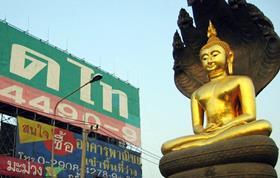
New quarantine laws in Thailand have caused headaches for a number of the country’s largest horticultural suppliers. With the major fruit supply season in December hovering on the horizon, exporters are unsure the Thai market will be open for business.
The changes to Thailand’s quarantine laws are still in the process of being finalised. The new regulations were announced in June 2007, and the Thai government informed suppliers it would conduct a full pest risk analysis (PRA) on each imported commodity.
Suppliers were invited to reapply for access and submit new PRAs for their products. For some reason South Africa did not, and as such one of Thailand’s largest horticultural suppliers had access to the market cut off.
The suspension of access halted imports of South African grapes, apples and pears last season, forcing buyers to turn to alternative suppliers of these products such as Australia, Chile, New Zealand and Peru.
South Africa has since submitted PRAs for all fruits, but industry sources note there appears to be no urgency on the Thai side to move negotiations forward.
As the third-largest supplier of grapes to Thailand, Australia stands to capitalise in the coming import season if South Africa fails to regain access in time. Australia is not without its own problems, however.
A final pest list has not yet been compiled for the Thai regulations, meaning the Australian Quarantine and Inspection Service (AQIS) must effectively deny export certification for any shipment containing insects.
One supplier effectively free of problems is the US. Currently apples, apricots, cherries, grapes, nectarines, peaches, pears, plums and strawberries are among the agricultural commodities from the US classified as non-prohibited and allowed entry into Thailand. There have been reports that US pomegranates and persimmons, neither on the non-prohibited list, have been denied entry recently.






No comments yet